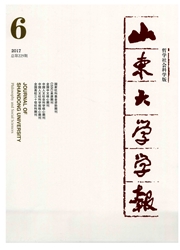

 中文摘要:
中文摘要:
以金融危机为背景,研究国有产权与上市公司表现的关系。结果表明,最终控制人为国有的上市公司在金融危机期间的表现更好,国有控股对股票价格收益有正向作用。同时,国有最终控制人仅在金融危机期间可以减小公司受到ST处理的概率。进一步研究发现非融资约束企业中,国有产权对公司股票收益率起正向作用,而在融资约束企业中国有、非国有企业没有明显差异,说明在金融危机中国有最终控制人对企业“帮助之手”更强,而“攫取之手”更弱,对企业的掏空动机更弱,从而使得国有企业表现相对更好。
 英文摘要:
英文摘要:
On the background of the financial crisis, we study the relation of the state ownership and the listed corporations' performance. The results show that the listed corporations with state-owned ultimate owners perform better during the financial crisis and the state ownership has a positive effect on stock returns. At the same time, state-owned ultimate owners can only reduce the probability of being ST during the financial crisis. Further study finds that state ownership plays a positive effect on stock returns in the enterprises with less financial constraints, while there is no obvious difference between SOE and other corporations with financing constraints. State-owned ultimate owners have stronger 'helping hand' and weaker 'grabbing hand' in the crisis than in the normal condition; their tunneling motivation is weaker than that of the other corporations, so the state-owned enterprises perform better relatively.
 同期刊论文项目
同期刊论文项目
 同项目期刊论文
同项目期刊论文
 期刊信息
期刊信息
